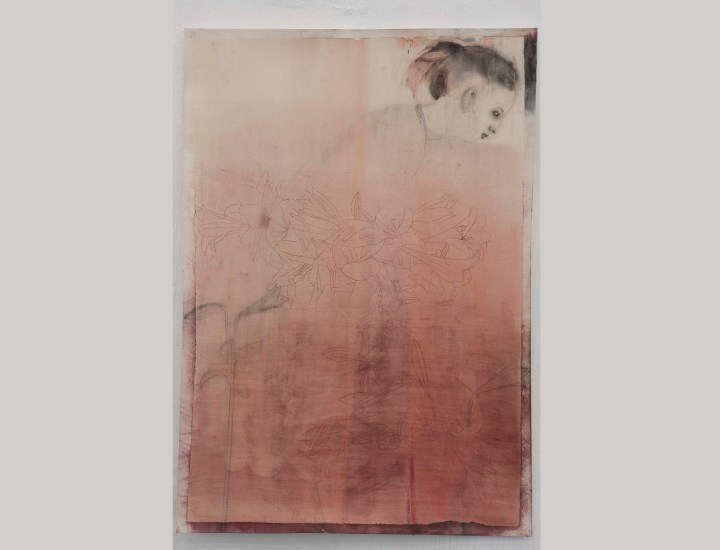Maverick Citizen
Unlocked: Poems for Critical Times (Series Two, Part three)

In times of uncertainty, many readers turn to poetry, seeking not just consolation but clarity. “Unlocked: Poems for Critical Times” brings South African poems to those facing the isolation, confusion and unease engendered by the Covid-19 pandemic. In a situation in which information is being transferred at disquieting speed, poetry asks us to slow down, to attend with care to the way poetic language re-creates our singular interior lives and loves as well as our shared social and political landscape.
Editors’ note to readers: The automated sound device that accompanies articles in Daily Maverick is to assist readers who are blind or have reading difficulties. It is not designed for poetry. Where possible, we advise you to read the poems rather than listen.
The poem below, by the late marine biologist and poet Douglas Livingstone, has been much anthologized and it is not difficult to understand why. Beginning in jaunty mode, all predictable male bonhomie, by the third stanza the tone radically changes to accommodate the shocking sight of a dying wildcat and her litter, attacked mid-confinement by a jackal. The idiom shifts from scientific observation of the wildcat to appalled euphemism (“bitten-off things) and then to a striking recreation of an intimate encounter between man and animal. After contemplating “the mystery, death” that animals and humans share, the poem ends quietly, describing a merciful and tender act.
I admire the compressed language, the solidity of the verse form and the aural complexity of the half-rhymes and end-rhymes. All serve the poem’s dramatic drive, generating shock, suspension, sorrow and then acceptance of the continuity of natural process. And I am always moved by the resolve of the elegiac but exacting final lines, where the bodies of the wildcat and her first-born, placed high up in a tree, are commemorated as something that will “restart/a cycle of maybe something more pastoral/commencing with beetles, then maggots, then ants.”
***
Gentling a Wildcat
By Douglas Livingstone
Not much wild life, roared Mine leonine Host
from the fringe of a forest of crackles
round an old dome-headed steam radio,
between hotel and river – a mile of bush –
except for the wildcats and jackals.
And he, of these parts for years, was right.
That evening I ventured with no trepidations
and a torch, towed by the faculty
I cannot understand, that has got me
into too many situations.
Under a tree, in filtered moonlight,
a ragged heap of dusty leaves stopped moving.
A cat lay there, open from chin to loins;
lower viscera missing; truncated tubes
and bitten-off things protruding.
Little blood there was, but a mess of
damaged lungs; straining to hold its breath
for quiet; claws fixed curved and jutting,
jammed open in a stench of jackal meat;
it tried to raise its head hating the mystery, death.
The big spade-skull with its lynx-fat cheeks
aggressive still, raging eyes hooked in me, game;
nostrils pulling at a tight mask of anger
and fear; then I remembered hearing
they are quite impossible to tame.
Closely, in a bowl of unmoving roots,
an untouched carcass, unlicked, swaddled and wrapped
in trappings of birth, the first of a litter stretched.
Rooted out in mid-confinement: a time
when jackals have courage enough for a wildcat.
In some things too, I am a coward,
and could not here punch down with braced thumb,
lift the nullifying stone or stiff-edged hand
to axe with mercy the nape of her spine.
Besides, I convinced myself, she was numb.
And oppressively, something felt wrong:
not her approaching melting with earth,
but in lifetimes of claws, kaleidoscopes:
moon-claws, sun-claws, teeth after death,
certainly both at mating and birth.
So I sat and gentled her with my hand,
not moving much but saying things, using my voice;
and she became gentle, affording herself
the influent luxury of breathing –
untrammelled, bubbly, safe in its noise.
Later, calmed, despite her tides of pain,
she let me ease her claws, the ends of the battle,
pulling off the trapped and rancid flesh.
Her miniature limbs of iron relaxed.
She died with hardly a rattle.
I placed her peaceful ungrinning corpse
and that of her firstborn in the topgallants
of a young tree, out of ground reach, to grow: restart
a cycle of maybe something more pastoral,
commencing with beetles, then maggots, then ants.
From Eyes Closed Against the Sun, Oxford University Press, 1970. Courtesy Amazwi Museum. DM/MC/ML



















 Become an Insider
Become an Insider